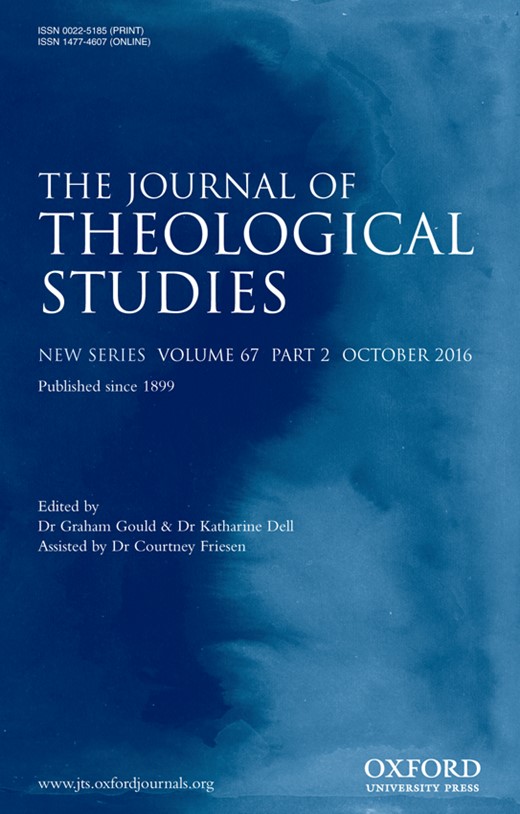-
Views
-
Cite
Cite
Julia A. Lamm, Eternal Blessedness for All? A Historical–Systematic Examination of Friedrich Schleiermacher’s Reinterpretation of Predestination. By Anette I. Hagan., The Journal of Theological Studies, Volume 67, Issue 2, October 2016, Pages 859–861, https://doi.org/10.1093/jts/flw105
Close - Share Icon Share
Extract
This study of Friedrich Daniel Ernst Schleiermacher’s ‘reinterpretation’ of the Christian doctrine of predestination not only marks a welcome contribution to Schleiermacher studies but also promises to be a useful theological resource in general. At the heart of Hagan’s book is her analysis of Schleiermacher’s two published treatments of the doctrine of election: an essay entitled ‘On the Doctrine of Election’, published in 1819 as a ‘predecessor’ to his dogmatics (p. 98), and the relevant propositions in the second part of his The Christian Faith (CF), which remained little changed between the two editions (1821–2, 1830–1). What distinguishes Hagan’s discussion from others, and thus what makes her contribution an important one, is the degree to which she sets Schleiermacher’s doctrine in context. Her work on this score is both painstaking in its details and sweeping in its tracing of theological trajectories—hence the subtitle, ‘A Historical-Systematic Examination’.
The book is divided into three main parts. In Part I, ‘Background and Context for Schleiermacher’s Conception of Election’, Hagan presents the somewhat tortured history of the doctrine of election in the history of Protestantism—from the role of the various Confessions in shaping Protestant theology in the sixteenth and seventeenth centuries (ch. 2), through various developments in Prussia and the particularities of German-speaking Reformed churches (ch. 3), up to Schleiermacher’s time and the matter of Prussian Church Union (that is to say, union of the Lutheran and Reformed churches) (ch. 4).



